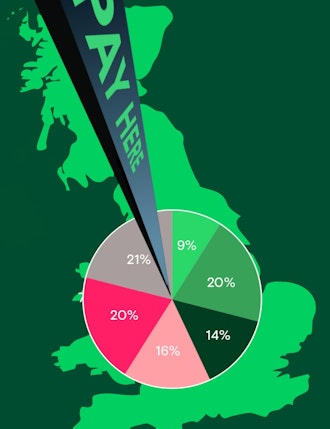It is widely known that for financial services to continuously grow and evolve, they must become more efficient, accessible, and convenient to the market. Cashless and digital transactions are becoming prominent modes of payment among many consumers and businesses.
That said, the implementation rate of Artificial Intelligence (AI) in financial services is significantly increasing, pushing banks and other financial institutions to integrate their services with AI and machine learning opportunities for consumers to utilize and enjoy.
But how does AI come into play with the financial sector? Let’s find out.
Defining Artificial Intelligence
We already have a general idea of what Artificial Intelligence is. It is a part of computer science that builds smart machines capable of learning and performing tasks that require human intelligence. Meanwhile, machine learning – a subset of AI and usually comes hand-in-hand – focuses on building systems and frameworks that improve its performance through learning algorithmic patterns over time.
Within the financial services industry, AI concerns technology that encompasses everything from chatbots to fraud detection and process or task automation. As the world shifts further into digitization, implementing AI into their practices can become their bread and butter.
The landscape of AI integration in the Financial Services industry
The implementation of Artificial Intelligence into financial services is reshaping the behaviour of consumers and companies alike towards money management and financial access. According to a report conducted by Allied Market Research, AI in the fintech and financial services industry is expected to generate over US$61 billion by 2031.
Data from Business Insider Intelligence shows that over 80% of banks are highly aware of the potential benefits presented by AI, including an estimated forecast of US$447 billion for the aggregate potential cost savings for banks from AI by 2023. Moreover, they predict that by 2023, the digital banking penetration rate will grow from 75.8% to 78%.
AI is taking the world by storm, pushing everyone to jump the wagon and take advantage of this tech asset that can bring numerous benefits to their business in the long run.
Use cases of AI within Financial Services
How do we implement AI into financial services, and where will it come into play? Given that AI is a vast set of technologies dedicated to enhancing digital interactions by mimicking human intelligence, it can be placed almost anywhere that enables translation from analogue to digital means. Here we listed three general cases of how AI can be used within financial services.
Personal finance
Taking hold of your finances is a goal for many. Having the ability to fully control and access your personal money at any time of any day – and at the touch of a button – is the most ideal money management process individuals want to have. This idea is one of the main reasons for incorporating AI into financial services.
AI is capable of performing simple and menial tasks that can cater to consumer needs almost instantly. A significant contributor to personal finances is its ability to predict and pattern user algorithms and use these as basis to create reports and prescriptions on their financial situation. This feature is common among numerous money management apps.
Moreover, AI for personal finance also carries out tasks such as:
- Biometrics and Authentication.
- 24/7 Chatbot and Support
- Data Analytics and Prediction (budgeting, credit building, etc.)
Corporate finance
Implementing AI practices into your business can significantly help you in fostering a better business finance management process. Its capabilities for managing financial operations such as bookkeeping, accounting, and other financial activities can streamline your business operations which can reduce costs and and increase financial sustainability.
Here are a few ways for AI to contribute towards managing corporate finances:
- Accurate Record Keeping
- Task Automation
- Provide Access toward Key Financial Insights
Consumer finance
Nowadays, banks and financial institutions have heavily implemented AI-based systems and machine learning in efforts to improve predictive models within operational risk management functions such as fraud detection, stress testing and provisioning, credit assessment, credit scoring, and monitoring of existing assets.
With numerous data to check and keep track of, using human intelligence is simply insufficient. According to Fundera, around 80% of individuals prefer to transact using credit or debit card transactions over cash. Corporations who provide financial services can benefit from AI-driven risk assessment processes to help avoid human error in delivering critical services such as loans and investments.
Diving into AI technology within the Financial Services sector
Artificial Intelligence and machine learning has been around for decades and has continuously evolved to provide more efficient and well-rounded services to its market. As an entrepreneur in the financial sector, taking the time to consider the capabilities of AI towards financial management and enhancing overall financial services can help your business in the long run.
Sources
Forbes, Three ways AI is transforming business finance management
Deloitte, AI in Financial Services
Genpact, AI in consumer banking
Built in, 25 Examples of AI in Finance
Nasdaq, Rise of the Money Machines: Can AI Fix Personal Finance?
Interested in reading more around this subject? Here are some useful articles…













